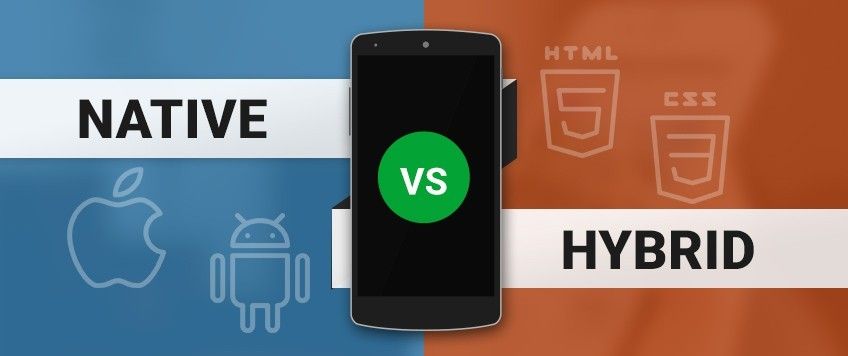What Should You Choose — Hybrid or Native Mobile App Development?

Before we proceed to choose the right one between native and hybrid mobile app development, there is one thing about smartphones that you should know of. Smartphones are very important nowadays considering they play an integral part in our everyday lives.
Did you ever hear from someone who lost their phone said to themselves, “That’s ok, I’ll buy a new phone. It is not that important?”
Certainly not, right?
Once you lose your smartphone, the first and foremost thing would be finding it or getting a replacement. There’s no other important thing that you would do in that situation.
Because of the reliability and many other things, you would completely depend on your smartphone.
Now just like your smartphone, customer experience is just as important. What if I asked you what are the odds of finding your smartphone? Will you say hardly 5 to 10 percent, right? Same is the case with the user experience. Once users find if the website’s performance or loading time is not up to the mark then without any second thought your users will just stop using your app.
You may even revamp your app or fix whatever errors or bugs you earlier found, but can you make the same user who thought your website is bad to come back to you again? The odds are very few.
Nothing is more important than user experience when it comes to mobile app development. It is a universal fact that hybrid applications do not perform as well as native apps so if you are going to choose hybrid application development then make sure you know both its pros and cons.
Now, do you want to surprise and entice your customers by developing an entirely native application which integrates into either of the platform ( Android or iOS)? Or are you inclined toward building a hybrid application that can be released across platforms using a minimum viable product approach? Of course, both native and hybrid have their own pros and cons.
Out of our experience as a web and mobile app development company, VironIT sheds some light on native vs. hybrid app development.
Hybrid application development
Hybrid apps pretty much look and feel like a native application but in the end, they are fueled by the companies websites. Usually, hybrid application development results in a web application developed utilizing HTML5 and JavaScript, put together in a native container that provides most of the information on the page as the customer navigate through the app. Some of the big brands we know are Facebook, Twitter, and Instagram.
Native application development
This kind of application is developed keeping in mind the technical and user experience guidelines of the operating system ( iOS or Android). Native application development always results in faster performance. Also, the in-app interaction will have a look and feel that is almost consistent with other native apps on Android or iOS (Any other OS for that matter). Your end users will learn how to navigate and utilize the application quickly. In addition, native apps have one of the most important advantages and that is they can easily access and use inbuilt capabilities of the user’s smartphone such as camera, contacts, etc.
Time to market or do it right?
Usually, when a company decides to launch its own mobile application, mostly it will be one of the two cases. Either they want to give strong competition to their rivals or they have identified a golden business opportunity and want to solve their customers’ problems. But whatever the reason is, the company quickly wants to release their app in App Store and/or Play Store. However, as most people know, the word “Quickly” often means compromises that the company had to make while building the mobile app.
Both hybrid and native application development can do the job but then again they are some specific considerations which you should understand.
First, if you can wait at least 5-6 months for your mobile app development to complete then native app development makes sense. But if you have less time to market (Less than 5 months) then hybrid app development would be a better option. Because the application can be developed in one source code and released across platforms which clearly means that you would be saving a lot of development time, resources, and effort when compared to the native mobile app development.
Again, remember one thing. Your users would want to see an excellent user experience. They literally don’t care what approach you used for your mobile app development. They love speed, performance, responsive websites.
A vital differentiator in the Hybrid vs. Native mobile app development — User experience
User experience is the only key to win your user’s hearts. There is no other way out. When companies started developing websites (A couple of decades ago), they disagreed with this concept. Of course, there are some people who still do. Back then, many websites had a poor user experience so it didn’t matter that much. But now, this is only and important key differentiator. Unless you immediately want an app that works across platforms, native app development is recommended for long-run.
In this 21st century, the user experience is so very important for mobile apps that more than 90 percent of users abandon an app that gives poor user experience and will never use it again.
Each approach has its own advantages and disadvantages but at the end of the day, what suits best to your business objectives and requirements will be the best option for you.




